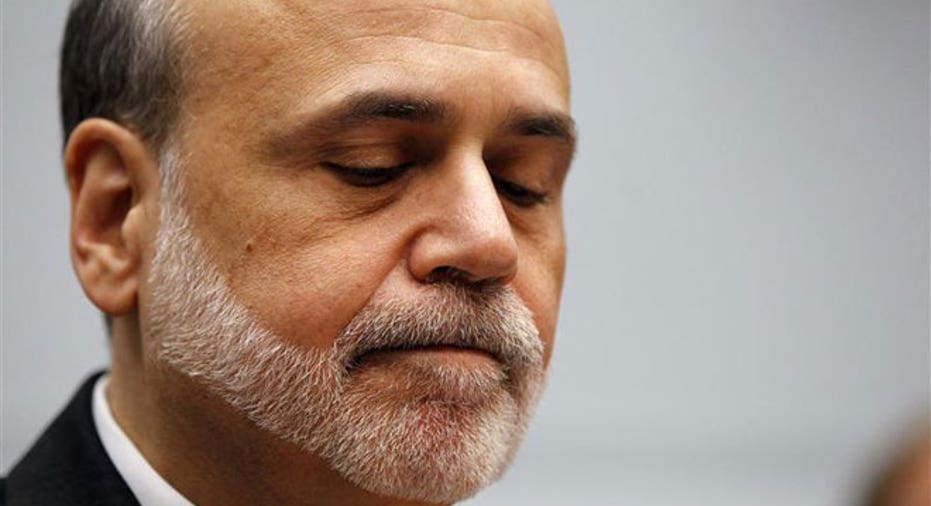QE3 Sparks U.S. Credit Ratings Downgrade From Egan-Jones

Fearing the negative repercussions of the Federal Reserve’s latest easy-money program, ratings firm Egan-Jones once again slashed the U.S.'s credit rating on Friday.
The latest downgrade brings the firm’s rating on the world’s largest economy down to “AA-,” which is three notches below the coveted “AAA” threshold.
Egan-Jones said it believes the Fed’s third round of quantitative easing, which sent stock prices surging on Thursday, “will hurt the U.S. economy and, by extension, credit quality.”
The firm said that while the program should boost equity markets, issuing additional currency and depressing interest rates through purchasing mortgage-backed securities will hurt the value of the U.S. dollar and cause a painful increase in commodity prices.
“In our opinion, QE3 will be detrimental to credit quality for the U.S.,” Egan-Jones said.
At the same time, Egan-Jones warned that the cost to finance U.S. debt will “slowly rise” as the global economy rebounds and the Fed scales back on its purchases of Treasury securities.
The ratio of U.S. debt to gross domestic product soared to 104% in recent months from 66% in 2006 and will likely increase to 110% in a year, the firm said. By comparison, Spain’s debt-to-GDP stands at 68.5%.
Fed Chairman Ben Bernanke addressed some of these concerns during his press conference on Thursday, noting that quantitative easing is not “comparable to government spending.”
Bernanke said the Fed will eventually “normalize its balance sheet by selling” recently-acquired financial assets back into the market.
“The odds are strong that the Fed’s asset purchase programs, both through their net interest earnings and by strengthening the overall economy, will help reduce rather than increase the federal deficit and debt,” Bernanke said.
The chairman also acknowledged concerns about inflation, pointing out that overall inflation has averaged very close to the Fed’s 2% annual target for a number of years and the central bank remains “fully committed” to its price stability mandate.
The Egan-Jones downgrade comes just days after Moody’s (NYSE:MCO) warned it too would downgrade the U.S. if Congress failed to reach a compromise to avoid the so-called fiscal cliff.
The Congressional Budget Office has warned that a failure to find a deal to avert these looming spending cuts and tax increases would send the U.S. into a recession.
Egan-Jones first removed the U.S.’s pristine “AAA” credit rating in July 2011 and then further downgraded the country to “AA” in April of this year.



















